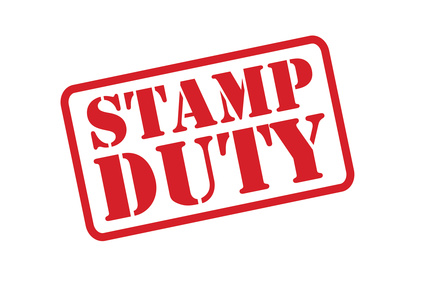Stamp Duty Hike on Second Properties to Take Effect Next Month
Published on March 4, 2016 by Sarah Mac

In our article last October we talked about forward planning for tax and the rules that will be coming in for landlords in the near future. The Autumn Budget also announced new rules on Stamp Duty Land Tax that will apply to investment properties and second homes where the purchase is completed from April 1st, unless you exchanged contracts before November 26th, 2015.
What are the New Rates?
When you complete a purchase that costs £40,000 or more, you will have to pay 3% more stamp duty than before. So:
- For properties costing between £40,000 and £125,000, which were previously were zero=rated for stamp duty, the cost for them will be 3% of the whole purchase price
- For properties costing £125,001 and over the rates are stepped
- In addition to paying 3% for the first £125,000, amounts between £125,001 and £250,000 will attract a rate that changes from 2% to 5%
- Between £250,001 and £925,000 it becomes 8%
- If you pay from £925,001 and £1.5 million it changes to 13% for that part of the transaction
- Anything over £1.5 million will be subject to a stamp duty charge of 15%.
You have to make the payment within 30 days of completion or you may find yourself having to pay interest and penalties.
When Might you Get Refunds?
The rates don’t apply to your main home, where you and your family spend your time, but they do apply to second homes. You can’t avoid them even if you buy a new home for yourself and let out the previous one. However, if you then sell the first property within 18 months, you can claim a refund of the additional stamp duty. And for everyone, when you eventually make a profit by selling an investment property, the stamp duty can be claimed back against the capital gains tax on the profit.
Is Anyone Exempt?
Larger investors will probably be able to avoid the higher rates, as the government wishes to support corporate bodies and others with larger property portfolios. It looks as though you won’t have to pay the extra if you have 15 or more properties.
As this is a land tax, it doesn’t apply to houseboats, so you can safely invest in a boat to rent out as a residence without worrying about the stamp duty. It’s not applicable to caravans or mobile homes either, because their owners usually don’t own the land they stand on. They will be in parks and sites owned by someone else.
Conveyancers are concerned that the new rules may dampen the buy-to-let market, especially as they take effect around Easter time, normally a boom time for house purchases. Solicitors report that some purchasers have been trying to push things ahead as much as possible to beat the deadline, while others have been cancelled because of the need to find the extra funds. Buyers are also trying to renegotiate prices down to cover the extra costs.
These could be options for you if you are in the throes of buying another property. You certainly need to consider the extra stamp duty and how it affects your current and future investment plans.

